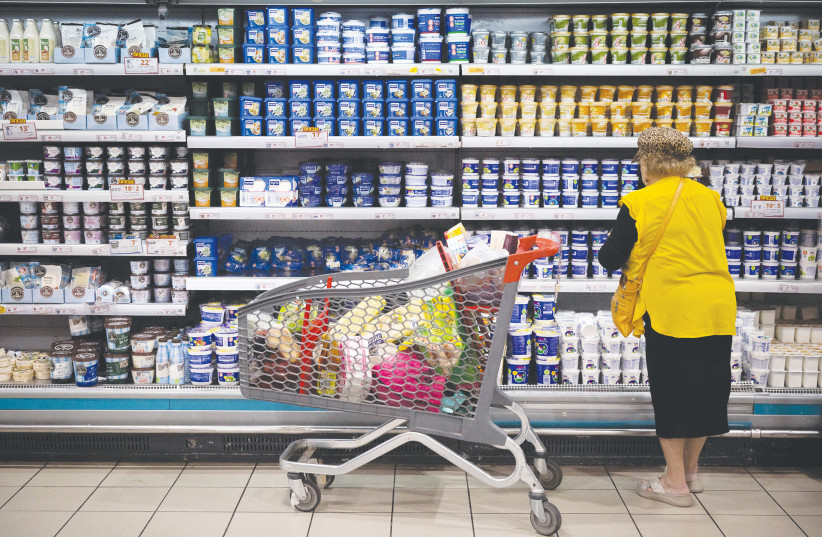The price of dairy products could rise up to 16% in May, according to dairy industry representatives during an Economic Affairs Committee meeting on Monday. In response to the news, committee chairman David Bitan has asked government representatives to investigate ways to curb the potential increase.
Farmers said that the price increase is due to the increased price of raw milk in Israel in recent months, coupled with rising prices due to the ease of foreign import regulations.
Bitan looking for answers
Bitan called upon Finance Minister Bezalel Smotrich to supply answers. “I wanted to lower the price, and now I see that I have to stop the price from increasing. What is going on here?” Bitan asked. “Tell [him] that this is what came up in the discussion, and we want an answer.”
Budget department representative Gilad Katzav addressed the concern surrounding the potential price hike. “We are aware of the expected increase in May – [but] the numbers are not accurate. We have taken steps such as canceling customs duties on mozzarella and halloumi [cheese] and will take further steps,” he said.
The increase is projected in spite of a recent amendment by the Agriculture Ministry last Wednesday, which aimed to temper the overall price of dairy products in Israel.

High prices for Israeli dairy
Monday’s meeting was the latest in a series of discussions on the ongoing trend of rising food prices, centered around the dairy industry, which is particularly painful. Bitan pointed out that the national milk, cheese and egg price index shows that Israel is 78% more expensive than most OECD countries.
According to CEO of Tnuva’s milk division Anat Gross-Shon, the price differences between Israel and the world can be explained by:
1. High Value Added Tax (VAT): at about 17%, compared to around 9% in other countries.
2. Kashrut: The increased attention and action required to ensure that dairy products produced in Israel are kosher accounts for between 10%-15% of the gap in prices.
3. Livestock feed: Import of seeds and livestock feed accounts for another significant portion of the higher dairy costs.
4. Government subsidy: Dairy farmers in many other countries receive government support, but not in Israel.
In response to Bitan’s concerns, Gross-Shon estimated that a 10% reduction in the price of dairy products would cost the state NIS 360 million.
Dr. Michal Levy, Chief Scientist & Senior Deputy Director-General of Agriculture Innovation, suggested that a possible solution could be a loan from the state budget until there is a decline in the prices of imported materials, which rose as a result of the war in Ukraine.
Bitan concluded the discussion by asking all government representatives to ensure that there will be no price increase in May, or to subsidize it for the consumer until the cost of inputs allows the price of raw milk to be lowered.
